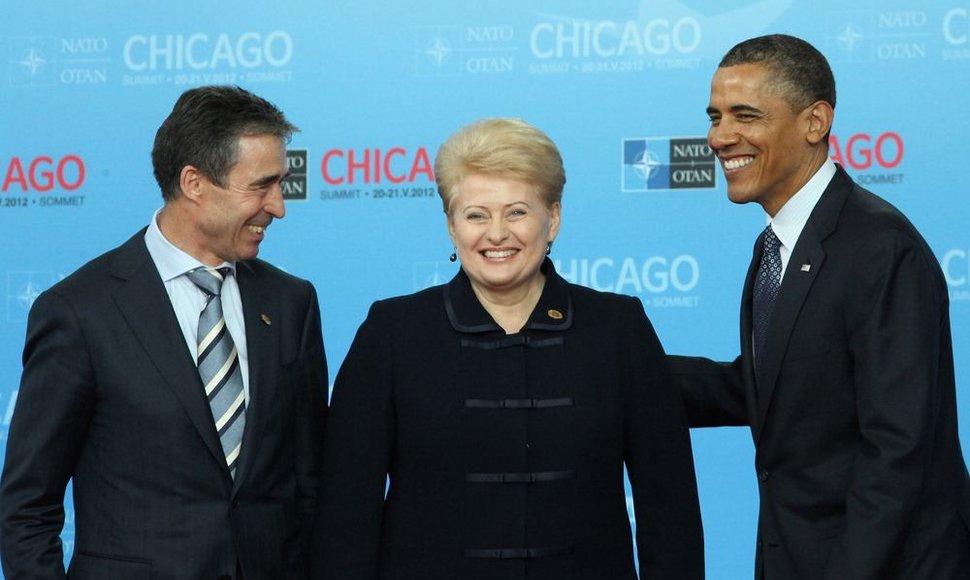However, he said in an interview to journalists after the meeting of the North Atlantic Council in Chicago on Sunday that the agreement could be reviewed.
"We have decided to continue air-policing without fixing or setting a date. Of course, such arrangement can always be reviewed but I think the important thing here is that, as part of our defence package, as part of the concept of smart defense, Allies have agreed that it is a better use of resources that Allies that have at their disposal the necesary aircraft can do the air policing, while the Baltic states can then focus on investment on deployable forces to participate in internatinal operations," Rasmussen said.
In his words, the air-policing mission in the Baltic states is an example of the investment made by the US and European Allies in "common security."
"We already have some good examples. In the Baltic states, NATO Allies take it in terms to patrol the air-space. This means our Baltic Allies can focus their resources in other critical areas, such as deployable forces for Afghanistan. This is why we have agreed that NATO will provide continuous air-policing for the Baltic states," the NATO secretary general told journalists.
The defense capacities declaration adopted by the NATO summit speaks little of the air-policing mission.
"We have extended our air-policing mission in the Baltic states. This mission and other Alliance air-policing arrangements in Europe, whereby Allies cooperate to provide security and reassurance, are visible signs of Alliance solidarity," reads the document.
Back in early February, NATO decided to extend the air-policing mission that had been mandated until 2014. Ambassadors then formally confirmed in Brussels that it would be a long-term mission with periodic reviews, while the Baltic nations committed themselves to increasing their contribution. The February document is confidential, however, according to information available to BNS, it ways that the mission review should take place after 2018.
NATO jets performing the mission are deployed in Lithuanian Air Force Aviation Base in Šiauliai, northern Lithuania. The Baltic states do not have sufficient capacities to ensure safe skies. The mission is currently performed by Poland.
5 million euros per year
Lithuania's President Dalia Grybauskaitė told leaders of NATO states that Lithuania, Latvia and Estonia would earmark 5 million litas per year starting 2015 to cover costs incurred by the Allies performing the air-policing mission.
"NATO air-policing mission in Baltic states is among the best examples of smart defence and a visible sign of NATO solidarity. Lithuania highly values the commitment of Allies to a continuous air-policing mission. The Baltic states have agreed to increase their support to the mission from 2.2 million euros to 5 million euros per year starting from 2015," she said during the NATO summit in Chicago on Sunday.
Currently, the three Baltic states earmark about 3 million euros to the NATO mission deployed in Siauliai, northern Lithuania. The contributions of all three countries are about the same. The Balts cover accommodation costs of NATO's military contingents, provide deicing and transportation services, with plans to pay for the fuel necessary for NATO jets to respond to air-space violations.
NATO has been guarding the air-space of Lithuania, Latvia and Estonia since their accession to NATO in 2004, as the three countries have no suitable military capacities. The Alliance wants the three Balts to take on more mission-related financial commitments. Polish aviators and jets are currently guarding the Baltic skies.
The president also noted that, as members of the Alliance face with financial and economic challenges, it is important to "spend smarter and cooperate more."
"This is why I support the invitation by the NATO secretary general to agree on a new common goal - NATO Forces 2020, and the best means to achieve it, most notably through smart defense, Connected Forces and other initiatives," said Grybauskaitė.
The Lithuanian president also noted that the Energy Security Center established in Vilnius in 2010 was "a practical contribution to NATO's efforts in the field of energy security and to smart defense." The center is expected to become an official NATO center of excellence in the end of this year or in early 2013.
"Once it becomes a NATO Center of Excellence, it will provide assessments, recommendations and proposals for efficient energy solutions to support the military, engage in education and training, as well as provide scientific, technical and academic analysis. I welcome the support shown by NATO Allies to the center," Grybauskaitė added.














